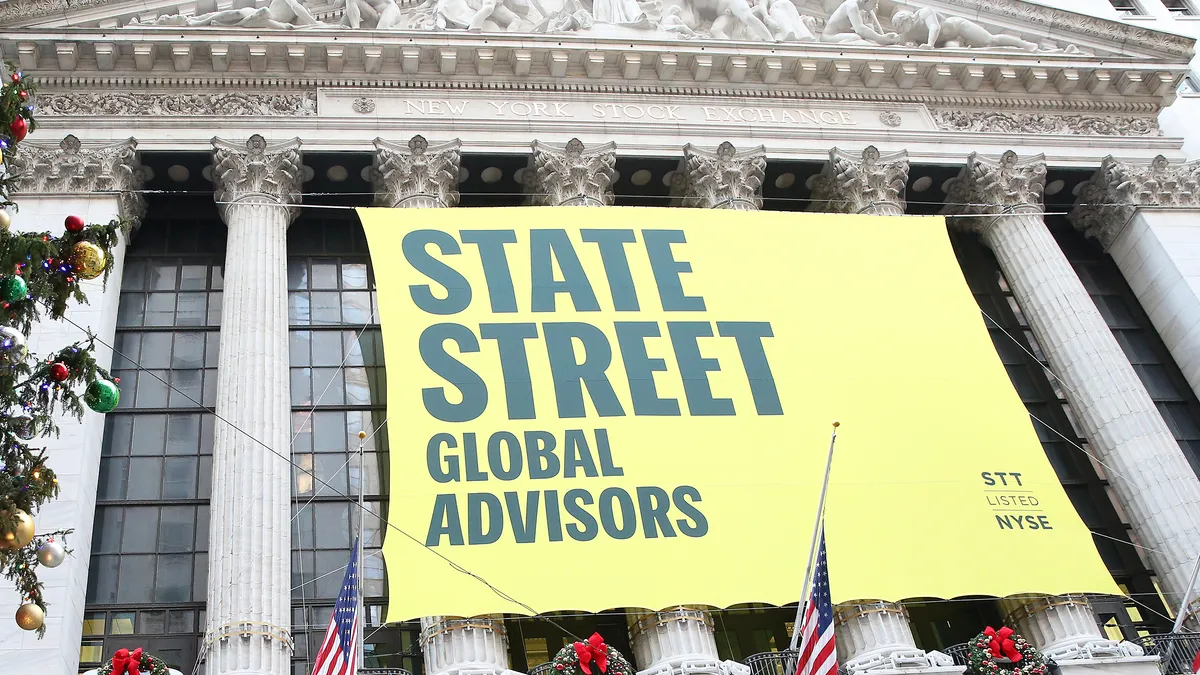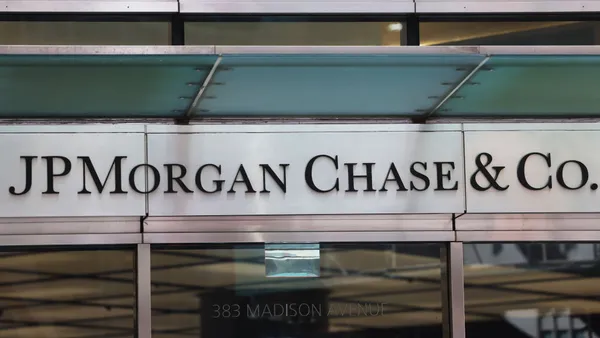Dive Brief:
- State Street’s $3.1 trillion investment arm will "take appropriate voting action" against board members at big U.S., U.K., French, German, Japanese and Australian companies that lag on environmental, social and governance (ESG) standards if they "cannot articulate how they plan to improve" a score the bank calls the "R-factor," for responsibility, it stated in a letter this week, according to the Financial Times.
- State Street Global Advisors CEO Cyrus Taraporevala said the initial focus, beginning this proxy season, would be on a small group of companies that are performing particularly poorly, but would expand in 2022 to companies that have consistently underperformed, compared with their peers.
- The bank is the latest systemically important financial institution to push back against firms that fail to measure up on social responsibility. Goldman Sachs in December pledged, over the next decade, to take on $750 billion in loans, underwriting, advisory services and investments geared toward renewable energy, sustainable transportation, affordable education and other areas.
Dive Insight:
Banks have taken progressively stronger stances with regard to ESG goals, leading to theoretical and practical change. About 130 banks signed on to the United Nations' Principles for Responsible Banking in September. Socially responsible lending increased 40% last year, compared with 2018, S&P Global Ratings reported. And a number of banks in 2019 — from JPMorgan Chase and Bank of America to Barclays — vowed to stop funding the private-prison industry.
The ESG push has continued into 2020. Private-equity giant BlackRock promised to divest $500 million from coal-related businesses, calling on "every company, not just energy firms, to rethink their carbon footprints."
And Goldman followed up its social and climate-related pledge with an announcement last week that it would no longer take a company public in the U.S. or Europe if its board is composed of all white, straight men.
State Street Global Advisors said fewer than a quarter of the companies it has evaluated have meaningfully identified, incorporated and disclosed ESG issues into their strategies, according to Pensions & Investments.
"We believe a company’s ESG score will soon effectively be as important as its credit rating," Taraporevala wrote this week.
Some investment group executives have raised concerns that giving the ESG score too much sway would alienate some clients. But Taraporevala said addressing ESG issues is "essential to a company’s long-term financial performance — a matter of value, not values."
"Ultimately, we have a fiduciary responsibility to our clients to maximise the probability of attractive long-term returns — and will never hesitate to use our voice and vote to deliver better performance for them," he wrote.
State Street said a push for diversity dating back to 2017 has led 583 companies to add or commit to adding women to their boards. But the investment bank is far from the only entity targeting board members’ ESG shortfalls. Britain’s Legal & General Investment Management voted against the election of 3,864 directors globally in 2018, citing climate change, diversity or other governance factors, the Financial Times reported.
State Street’s "R-factor" is based on an ESG disclosure framework established in 2018 by a San Francisco nonprofit, the Sustainability Accounting Standards Board. The metric was designed specifically for investors and has been adopted by money managers with more than $30 trillion in assets.













